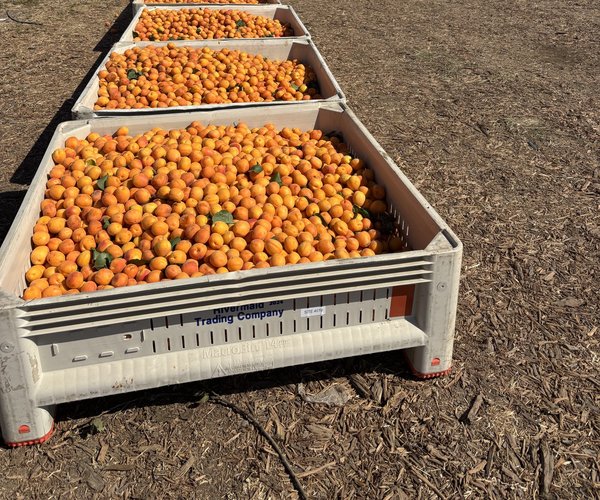Lower market prices for conventional almonds may motivate more growers to consider going organic, which still commands a premium. But production challenges and other economic factors continue to make the transition a risky endeavor for some farms.
Demand is still increasing for organic almonds, marketers and others in the business say. But state production remains small, and has been for years. Organic almonds represent about 1% of total state production of the nut, with bearing acreage in 2019 at 15,206 acres according to the California Department of Food and Agriculture.
Big Tree Organic Farms in Turlock is one of the only organic almond sellers in the area and they usually have to source organic almonds, often from overseas, because suppliers in California are limited, according to sales representative Susan Cook.
With conventional almond prices less profitable for farmers in recent years and organic almond prices remaining stable, farmers could start growing more organic almonds. The return on one pound of conventional almonds is about $1.50 per pound, whereas organic almonds yield a $4 return.
It’s more difficult to grow organically, however.
"The market could go sky high," Cook said. "The demand could go even further, but a lot of these larger companies say the production is not stable enough for them."
Organic farming costs more, is riskier and delivers lower yields than “conventional” almond farming. Extensive labor and numerous passes with a mower are the substitutes for herbicides (chemical weed control), and organic nutrient products are more expensive than synthetic nitrogen fertilizers. There are also fees for Organic Certification, Inspections and State Organic Registration, and service providers, like shellers, sometimes charge organic farmers extra for running organic almonds through their facility.
Spring rains can ruin an organic crop, since there are no organically-approved methods to control orchard infections once they take hold. Organically-farmed almond orchards usually produce 25% less than their non-organic farmed counterparts. Even with all these challenges, Big Tree Organic Farms believes it is worth it to provide customers with an organic product.
“With all the great benefits for not only our environment but our bodies as well, it seems to be worth that extra bit of money,” their website states.
The California Farm Bureau Federation contributed to this report.









